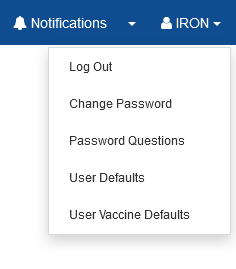06 Aug 2021 Avoiding Administration Errors: Scheduling Errors
Avoiding Administration Errors: Scheduling Errors
Dear Immunization Provider,
The Immunization Program thanks you for your critical role of ensuring children in Philadelphia receive up-to-date immunizations prior to the school year!
To help you in your immunization efforts we have assembled some tips for avoiding one of the most common vaccine administration errors: scheduling errors!
What are Administration Errors?
Administration errors due to scheduling occur when vaccines are given too early – either before the appropriate minimum age or before the recommended interval for a particular vaccine.
Unfortunately, early doses are not valid. Minimum ages and dosing intervals have been studied for efficacy and safety. Administering vaccines out of this range may not generate an adequate immune response, leading to vulnerability to disease, side effects, or harm to the provider’s relationship with the patient/parent. It is in everyone’s best interest to avoid administration errors!
Exception: There is a 4-day grace period before the minimum interval or age, although this should not be used when scheduling visits. This does not apply to the 28-day interval between two live injectable vaccines (e.g. MMR, Varicella) or Flumist if not administered simultaneously, or intervals between the rabies vaccine.
Common Scheduling Errors
Here are some of the most common scheduling errors found when reviewing immunization histories and scheduling immunization appointments:
- Administering the 1st dose of MMR, varicella, or hepatitis A vaccine before 12 months of age
- Giving the 4th dose of DTap before age 12 months (or less than 6 months after the 3rd dose)
- Not administering a dose of IPV after 4 years of age (at least 6 months after previous dose)
- Finishing the hepatitis B series before 24 weeks of age
- Administering any vaccine (except hepatitis B) before age 6 weeks
- Giving the 2nd dose of MenACWY vaccine before age 16 years for a healthy adolescent
- Inadequate spacing for the hepatitis A, hepatitis B, IPV and HPV series
- Using the incorrect needle size
- Injecting vaccine at the incorrect injection site
- Confusing Tdap (Tetanus, Diphtheria, Pertussis) and DTap (Diphtheria, Tetanus, Pertussis) vaccines
Tips from the Immunization Program
Here is a list of tips to find past administration errors and avoid them going forward:
- Keep an immunization schedule handy for clinical and office staff!
- When scheduling well-child visits, ensure a child will have reached the appropriate age (e.g., will be at least 12 months on the date of their 1-year well-child visit).
- Review the patient’s immunization record, by searching the PhilaVax IIS or by obtaining the patient’s vaccination records by contacting their previous healthcare provider.
- Use the tools in PhilaVax to understand what is indicated for the patient.
- A red exclamation mark means that a dose is not valid.
- Click “Recommend” below a patient’s record to see when vaccines are recommended.
Did you know? You can update your PhilaVax settings so recommended vaccines display at the top of your screen when reviewing patient records. Follow the steps below and reference the screenshots to do it yourself!
- Click your username in the upper right-hand corner (see screenshot 1)
- Under “User Defaults,” click “Display Today’s Recommendations” (see screenshot 2)
- Click “Update” to save the change (see screenshot 2)
Screenshot 1

Screenshot 2

What do I do if an Administration Error Happens?
- Check for guidance from the Advisory Committee for Immunization Practices (ACIP) and Centers for Disease Control and Prevention (CDC)
- Make a report to the Vaccine Adverse Events Reporting System (VAERS)
- Recommended if a dose administration error occurs (required for a COVID-19 vaccine under Emergency Use Authorization)
- Required if an adverse event occurs
Have questions about vaccine scheduling or the PhilaVax software? The Philadelphia Immunization Program is here to help! You can email us at vaccines@phila.gov for assistance.
Resources & References
- Immunization Action Coalition (IAC):
- Centers for Disease Control and Prevention (CDC):
- Birth-18 Years Immunization Schedule
- You can email CDC’s experts at nipinfo@cdc.gov
- CDC Pink Book:
- Advisory Committee on Immunization Practices (ACIP):
- Institute for Safe Mediation Practices:


